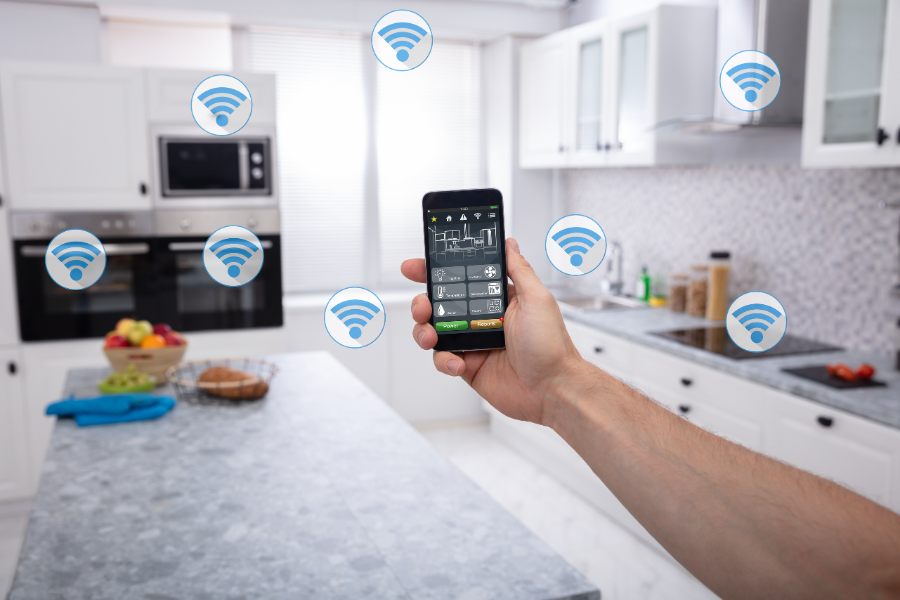
Smart device warranty considerations: What You Should Know
In today’s rapidly evolving world of technology, understanding smart device warranty considerations is crucial for anyone looking to invest in home automation. As the market for smart devices continues to grow, so does the importance of knowing what your warranty covers. Whether you’re a tech enthusiast or a homeowner looking to upgrade, this article will guide you through the essential aspects of smart device warranties, ensuring that you make informed decisions.

What is a Smart Device Warranty?
A smart device warranty is a promise from the manufacturer to repair or replace your device if it stops working due to certain manufacturing defects within a specified period. Warranties can vary significantly between manufacturers, so it’s essential to read and understand the terms before making a purchase.
Types of Warranties
There are generally two types of warranties: limited warranties and extended warranties. A limited warranty usually covers defects in materials and workmanship for a set period, often one year. Extended warranties, on the other hand, are additional coverage that you can purchase, extending the warranty period and sometimes covering accidental damage.
Why Warranties Matter for Smart Devices
Smart devices often come with a hefty price tag, making warranties a crucial consideration. They provide peace of mind, knowing that you’re protected against unexpected malfunctions. This is particularly important for devices that are integral to your home’s functioning, such as smart thermostats or security systems.
Key Coverage Areas in Smart Device Warranties
Manufacturing Defects
The most common coverage is for manufacturing defects, which are flaws that impede the device’s performance. This can include anything from hardware failures to software glitches.
Accidental Damage
Some extended warranties offer coverage for accidental damage, such as drops or spills, which are not covered under standard warranties.
Software Updates
As smart devices rely heavily on software, warranty coverage for software updates is vital. Ensure your warranty specifies whether software issues are covered.
Common Exclusions in Warranties
While warranties cover many issues, there are common exclusions to be aware of. These often include:
- Normal wear and tear
- Unauthorized repairs or modifications
- Damage from misuse or neglect
How to Choose the Right Warranty for Your Smart Device
When selecting a warranty, consider the device’s cost, intended usage, and your home environment. For instance, a smart home speaker may not require an extended warranty, but a costly smart refrigerator might.
Reading the Fine Print
Always read the warranty’s fine print to understand what is covered and what is not. Pay attention to the warranty period, coverage details, and claim process.
Making a Warranty Claim
If your smart device fails, you must follow the claim process outlined in the warranty. This typically involves contacting customer support and providing proof of purchase.
Keeping Documentation
Maintain detailed records of your purchase, including receipts and warranty documents, to streamline the claim process.
Cost-Benefit Analysis of Extended Warranties
Before purchasing an extended warranty, conduct a cost-benefit analysis. Consider the device’s value, potential repair costs, and the extended warranty’s price.
Real-Life Examples of Warranty Importance
Many consumers have benefited from warranties, saving money on costly repairs. For instance, a smart refrigerator malfunction could cost hundreds to repair without a warranty.
Integrating Smart Devices in Your Home
For information on integrating smart appliances with hubs, visit smart appliance integration to learn more about creating a seamless smart home environment.
Conclusion
Understanding smart device warranty considerations is essential for protecting your investment and ensuring your home’s technology runs smoothly. By knowing what to look for in a warranty, you can make informed decisions and enjoy your smart devices with peace of mind.

FAQs
What should I do if my smart device is not covered by a warranty?
If your device is not covered, consider contacting the manufacturer for repair options or researching third-party repair services.
Are extended warranties worth it for smart devices?
This depends on the device’s cost and your risk tolerance. Conduct a cost-benefit analysis to determine if an extended warranty is a good investment.
How do I know if my warranty covers software issues?
Check the warranty details or contact the manufacturer to confirm coverage for software-related problems.
For more insights into smart home technology, visit Nice For You for a comprehensive look at smart home solutions.
This article contains affiliate links. We may earn a commission at no extra cost to you.